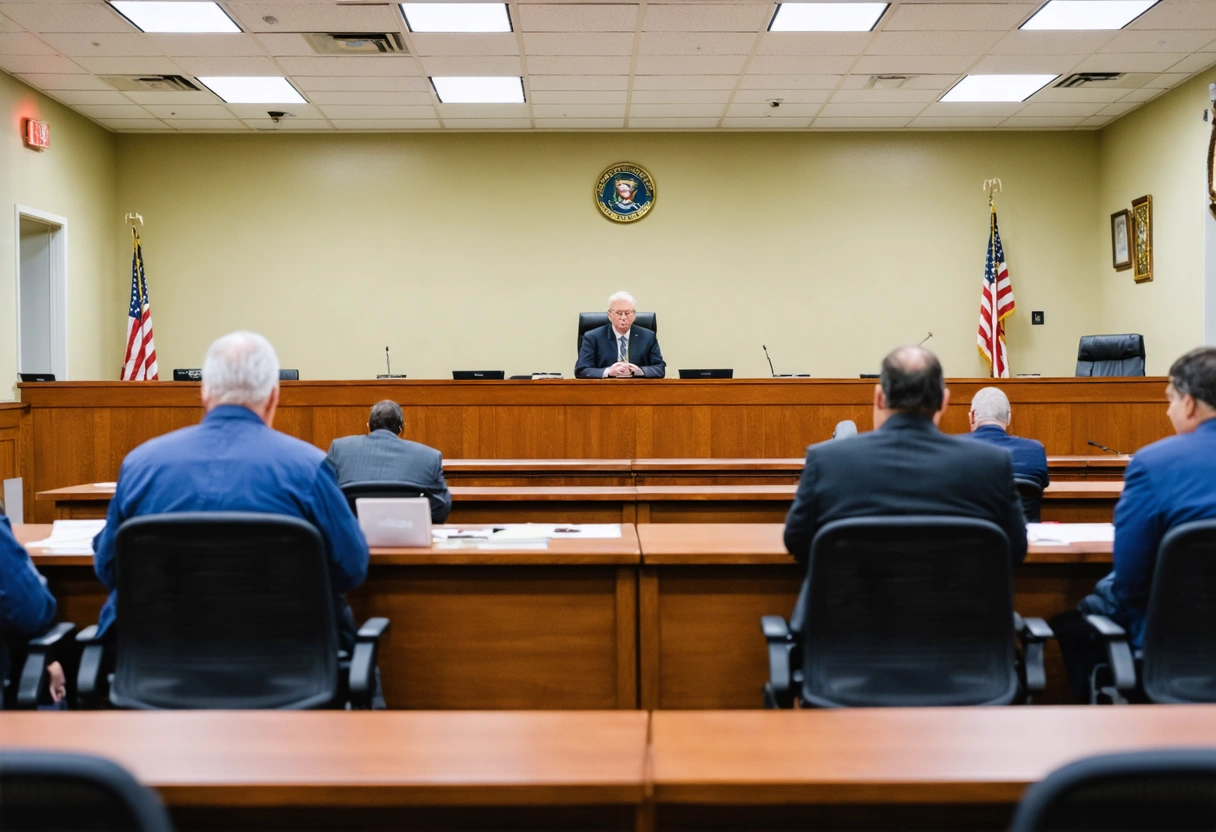The Role of Negligence in Florida Wrongful Death Cases: A Comprehensive Guide
Wrongful death cases are some of the most emotionally charged and complex legal matters encountered in Florida’s civil justice system. When a loved one dies as a result of someone else’s actions, the surviving family members may have the right to pursue justice and compensation. Central to these claims is the concept of negligence, which serves as the legal foundation for most wrongful death lawsuits. This comprehensive guide delves into the critical role of negligence in Florida wrongful death cases, breaking down the legal standards, procedural steps, and practical implications for families seeking accountability and closure.
Understanding negligence and its application in Florida is crucial for anyone considering or involved in a wrongful death claim. This guide will walk you through the essentials: what constitutes negligence, how it is proven, the statutory framework governing wrongful death in Florida, and the many nuances that can influence the outcome of a case. Whether you are a grieving family member or someone interested in legal processes, this post offers a thorough exploration of the subject.
What is Negligence?
Negligence is a foundational principle in civil law, particularly in personal injury and wrongful death cases. It refers to the failure to exercise the level of care that a reasonably prudent person would have exercised under similar circumstances. In legal terms, negligence is established when an individual or entity breaches a duty of care owed to another, directly causing harm or loss.
For example, if a driver runs a red light and causes a fatal accident, the driver may be considered negligent for failing to obey traffic laws and for not exercising reasonable caution. In wrongful death cases, the concept of negligence allows surviving family members to hold the responsible party accountable for the death, even if the act was not intentional.
Elements of Negligence in Florida Wrongful Death Cases
To successfully bring a wrongful death claim based on negligence in Florida, the plaintiff must prove four key elements. These elements form the backbone of any negligence-based lawsuit:
- Duty of Care: The defendant owed a legal duty to the deceased to act with reasonable care.
- Breach of Duty: The defendant breached that duty by acting or failing to act in a certain way.
- Causation: The breach of duty directly caused the death of the victim.
- Damages: The death resulted in measurable losses to the surviving family members or estate.

Each of these elements must be established with evidence. For instance, in a fatal car accident, the plaintiff would need to show that the at-fault driver had a duty to follow road safety laws, breached that duty, and that this breach directly caused the fatality and subsequent damages.
The Florida Wrongful Death Act: Statutory Framework
Florida’s wrongful death claims are governed by the Florida Wrongful Death Act, found in Florida Statutes Section 768.19. This statute outlines who may file a wrongful death lawsuit, the types of damages available, and the time limits for initiating legal action.
Under the Act, the personal representative of the deceased’s estate must file the lawsuit on behalf of the surviving family members, including spouses, children, parents, and sometimes other relatives who depended on the deceased for support. The Act also specifies the types of losses for which survivors can seek compensation, such as lost support and services, loss of companionship, mental pain and suffering, and funeral expenses.
Common Scenarios Involving Negligence in Florida Wrongful Death Cases
Negligence can arise in countless situations, many of which can result in tragic fatalities. Some of the most common scenarios that lead to wrongful death claims in Florida include:
- Motor Vehicle Accidents: Negligent drivers who speed, drive under the influence, or violate traffic laws can be held liable for fatal crashes.
- Medical Malpractice: Healthcare providers who fail to meet the standard of care, resulting in patient death, may be sued for wrongful death due to negligence.
- Premises Liability: Property owners who do not maintain safe conditions can be responsible if their negligence leads to someone’s death (e.g., slip and fall accidents, inadequate security).
- Product Liability: Manufacturers who produce defective products that cause fatal injuries may be deemed negligent.
- Workplace Accidents: Employers who disregard safety regulations may be liable for fatal workplace incidents.
Each of these scenarios requires a careful examination of the facts and application of the elements of negligence. For example, in cases of accidental injuries leading to death, proving that a defendant’s actions directly caused the fatal harm is critical to a successful claim.

Proving Negligence: Evidence and Legal Strategy
Establishing negligence in a wrongful death case requires a strategic approach to evidence collection and presentation. Plaintiffs must gather and present compelling evidence that clearly demonstrates the defendant’s breach of duty and its connection to the fatal outcome.
Key types of evidence used to prove negligence include:
- Accident reports and police records
- Eyewitness testimony
- Surveillance footage or photographs
- Medical records and autopsy reports
- Expert testimony (e.g., accident reconstruction specialists, medical experts)
- Maintenance and inspection logs (for premises and product liability cases)
For instance, in a medical malpractice case, expert witnesses may be called to establish what the standard of care was and how the defendant’s actions deviated from that standard. In auto accident cases, accident reconstruction experts can help demonstrate how the defendant’s negligent driving caused the fatal crash.
Comparative Negligence in Florida Wrongful Death Actions
Florida follows a modified comparative negligence rule, which can significantly impact wrongful death cases. Under this system, if the deceased was partially at fault for the accident that caused their death, the amount of compensation awarded to the survivors may be reduced in proportion to the deceased’s share of fault.
For example, if a jury determines that the deceased was 20 percent responsible for the accident and the total damages amount to $1,000,000, the award would be reduced by 20 percent, leaving the survivors with $800,000. However, if the deceased is found to be more than 50 percent at fault, survivors may be barred from recovering damages. This doctrine encourages a detailed assessment of all parties’ actions leading up to the fatal incident.

This approach to liability is explained in detail in resources like the Florida Comparative Negligence Rules, which can be critical reading for those navigating wrongful death litigation.
Statute of Limitations and Procedural Deadlines
Florida law imposes strict deadlines for filing wrongful death lawsuits. In most cases, the statute of limitations is two years from the date of death. Failing to file within this period will likely result in the case being dismissed, regardless of its merits.
Some exceptions may apply, such as cases involving medical malpractice or when the cause of death was not immediately discovered. In these situations, the clock may start running from the date the negligence was, or should have been, discovered. Nonetheless, plaintiffs should seek legal guidance promptly to avoid missing critical deadlines.
Damages Available in Florida Wrongful Death Cases
Damages in wrongful death cases are intended to compensate surviving family members for their losses, both economic and non-economic. Under the Florida Wrongful Death Act, eligible survivors may receive compensation for:
- Loss of support and services
- Loss of companionship and protection
- Mental pain and suffering
- Loss of parental companionship, instruction, and guidance (for minor children)
- Medical and funeral expenses
Additionally, the deceased’s estate may recover damages for lost earnings, medical expenses, and other financial losses incurred between the time of injury and death. In rare cases, punitive damages may be awarded if the defendant’s actions were particularly egregious or reckless.

For a more in-depth exploration of potential compensation, the Florida Wrongful Death Lawsuit Overview provides extensive information on this subject.
Defenses to Negligence in Wrongful Death Cases
Defendants in wrongful death cases often raise various defenses to avoid or limit liability. Common defenses include:
- Comparative Negligence: Arguing that the deceased was partially or wholly responsible for their own death.
- No Duty Owed: Claiming that they did not owe a legal duty to the deceased under the circumstances.
- Assumption of Risk: Alleging that the deceased knowingly and voluntarily assumed the risks associated with the activity that led to their death.
- Superseding Cause: Asserting that an intervening event, unrelated to the defendant’s actions, was the true cause of death.
- Compliance with Law: Demonstrating that they followed all applicable laws and regulations, thereby negating claims of negligence.
Understanding these defenses and how they apply is essential for plaintiffs and their legal representatives, as they shape the strategy and potential outcome of a case.
The Importance of Legal Representation
Wrongful death litigation is inherently complex, involving intricate legal standards, substantial evidence, and high emotional stakes. Working with an experienced attorney is often essential to navigate the process, build a strong case, and negotiate with insurance companies or opposing counsel.
Attorneys can help families determine the value of their claim, gather critical evidence, and represent their interests in court. They also ensure compliance with procedural rules and deadlines, which are vital to preserving the right to compensation. For more information about the value of legal expertise in these cases, see the American Bar Association’s guide to wrongful death.

Frequently Asked Questions About Negligence in Florida Wrongful Death Cases
Who can file a wrongful death lawsuit in Florida?
The personal representative of the deceased’s estate must file the lawsuit, but it is done on behalf of surviving family members, including spouses, children, parents, and sometimes other dependents.
What is the difference between wrongful death and homicide?
Wrongful death is a civil action seeking compensation, while homicide is a criminal charge brought by the state to punish the offender. A person can be subject to both criminal and civil proceedings for the same act.
How long does a wrongful death case take to resolve?
The timeline varies based on the complexity of the case, the willingness of parties to settle, and court scheduling. Some cases resolve in months, while others may take years, especially if they go to trial.
What if multiple parties are responsible for the death?
Florida law allows plaintiffs to pursue claims against multiple defendants. The court may apportion fault among them, and each may be required to pay a share of the damages.
Navigating Negligence in Florida Wrongful Death Cases
The concept of negligence is central to understanding and proving liability in Florida wrongful death cases. From demonstrating the breach of a duty of care to navigating comparative negligence rules and statutory deadlines, surviving family members face a challenging legal landscape. However, with the right knowledge, evidence, and legal support, families can pursue justice for their loved ones and secure the financial relief they need to move forward.
For those embarking on this difficult journey, educating yourself about Florida’s wrongful death laws and the nuances of negligence is a vital first step. By leveraging resources and seeking experienced legal counsel, families can maximize their chances of a successful outcome and honor the memory of those they have lost.

